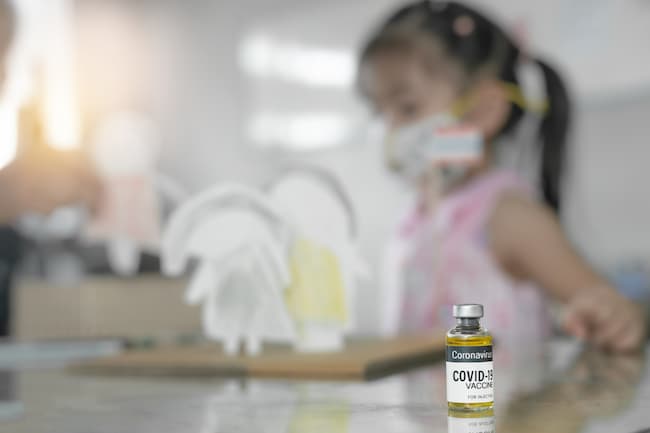In most places in Tennessee, Georgia, and North Carolina, the COVID-19 vaccine is available for residents ages 12 and up. The CDC recommends that everyone 12 years and older should get the vaccination to help protect against COVID-19. Read on for answers to some common questions about children and the vaccine.
Why should my child get the COVID-19 vaccine?
Although fewer children have been infected with COVID-19 compared to adults, children can still get infected, some may get very ill and some will develop long term side effects from their infection. Children with COVID-19 can spread the virus to others, even if they are not having any symptoms.
Despite early data suggesting that most children will have a mild COVID-19 illness compared to adults, certain children with chronic medical conditions — especially those that impact the heart, lungs, or immune system — may be at a higher risk for complications. For children with chronic medical conditions, the COVID vaccine is even more important to prevent serious COVID-19 infections and complications. Your child’s doctor can advise you on if the shot is appropriate for your child.
Are the side effects the same as those seen in adults?
In general, yes. Children may notice pain at the injection site and may experience mild fatigue. Other side effects may include headache, muscle or joint aches, fever, and chills — but these are usually temporary and clear up within 48 hours.
Will getting the vaccine allow my child to get back to regular activities?
When enough people have become vaccinated, the risk of becoming infected with the COVID-19 vaccine will decrease for everyone including children. Vaccines are just a part of the equation, though. Physical distancing, mask-wearing, and other precautions may continue to remain in place to help gradually return to normal activities such as school, sports, and camp. As always, continued hand hygiene is encouraged.
What if your child is under age 12 or cannot receive the COVID-19 vaccine yet?
First of all, everyone should continue to protect themselves and others by practicing good hand hygiene, social distancing, and mask-wearing where appropriate. And now we have the best tool available with COVID-19 vaccinations, so adults who frequently interact with chronically ill children should get their COVID-19 vaccination to help protect those children.
“By protecting the people that care for children with medical conditions and who are around them the most, we can help decrease the child’s exposure to COVID,” says Dr. Meghann McManus, pediatric hematology/oncology specialist. “These children go through so much in their lives already as they deal with their chronic illness,” she added. “We need to do everything we can to protect them when we have the opportunity.”
If you have spoken with your doctor and you are ready to pursue vaccination for yourself or your child, the first step is to check your local pharmacy’s website to see if vaccination walk-ins or appointments are available. You can also contact your state or local health department for information about vaccination sites or availability.
“The COVID-19 vaccines are free of charge to all, so use this opportunity of vaccination to protect yourself, your loved ones and to get one step closer back to those normal life activities you have missed,” Dr. McManus said.
Have questions about your child and vaccination? Talk to your pediatrician. If you don’t have one, you can find one here!







